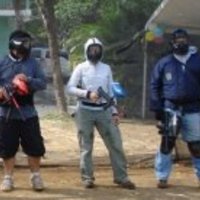
Carlo Cubero
I hold a PhD in Social Anthropology using Visual Media from the University of Manchester, where I specialised in the contemporary Caribbean and Visual Anthropology. I am currently Associate Professor of Anthropology at Tallinn University.
One strand of my research has focused on developing audiovisual methods for anthropological research. I have produced numerous documentaries and sound works that have been screened at film festivals, conferences, and television. I have also served in the film selection committees of many anthropological film programmes in Europe (EASA, SIEF, FAS). I currently serve in the curating team of the Riga Pasaules Film Festival, an annual documentary film festival held in Riga. My current project is the production of an ethnographic documentary on nocturnal spaces recorded and presented in 360 degree format. This project is carried out in collaboration with the Estonian National Museum.
Another strand of my research concerns itself with the complexities of Caribbean island life in a para-colonial and global context. My book Caribbean Island Movements: Culebra's Trans-insularities (Rowman and Littlefield 2017) makes a case for the concept of "transinsularism" as a means to engage productively with the contradictions that characterise Caribbean island identities. The book describes transinsular relationships within the context of anti-military grassroots activism, tourism and development policies, maritime geography, and music. The monograph is based on a long term relationship with the island of Culebra, located in the north-eastern Caribbean.
Supervisors: Peter Wade and Paul Henley
Phone: +372 6199537
Address: 5 Uus Sadama
10120 Tallinn
Estonia
One strand of my research has focused on developing audiovisual methods for anthropological research. I have produced numerous documentaries and sound works that have been screened at film festivals, conferences, and television. I have also served in the film selection committees of many anthropological film programmes in Europe (EASA, SIEF, FAS). I currently serve in the curating team of the Riga Pasaules Film Festival, an annual documentary film festival held in Riga. My current project is the production of an ethnographic documentary on nocturnal spaces recorded and presented in 360 degree format. This project is carried out in collaboration with the Estonian National Museum.
Another strand of my research concerns itself with the complexities of Caribbean island life in a para-colonial and global context. My book Caribbean Island Movements: Culebra's Trans-insularities (Rowman and Littlefield 2017) makes a case for the concept of "transinsularism" as a means to engage productively with the contradictions that characterise Caribbean island identities. The book describes transinsular relationships within the context of anti-military grassroots activism, tourism and development policies, maritime geography, and music. The monograph is based on a long term relationship with the island of Culebra, located in the north-eastern Caribbean.
Supervisors: Peter Wade and Paul Henley
Phone: +372 6199537
Address: 5 Uus Sadama
10120 Tallinn
Estonia
less
Related Authors
Marie Cruz Soto
New York University
José I Fusté
University of California, San Diego
Carlos Rivera-Santana
College of William and Mary
Luis Aponte Pares
University of Massachusetts, Boston
Joel O Melendez-Diaz
University of Puerto Rico - Humacao
Carlos Ramos-Scharron
The University of Texas at Austin
Manuel Valdes-Pizzini
University of Puerto Rico Mayaguez
Jorge L . Chinea
Wayne State University
Anna N Thelen
Latrobe University
InterestsView All (55)








Uploads
Books by Carlo Cubero
Rowman & Littlefield, 2017
Caribbean Island Movements explores the different ways in which being mobile is central to the production and reproduction of social identities on the Caribbean island of Culebra. Rather than seeing insularity and mobility, and its associations, as mutually exclusive components, this ethnographic study demonstrates how they mutually inform each other. The book proposes the term of "transinsularism" as a means to articulate the complex ways in which islanders construct a unique place for themselves in the world, while referencing and engaging in practices of movement.
Based on a long term relationship to the Caribbean island of Culebra, it describes how mobile islanders select from various, at times contradictory, discourses and practices in the process of fashioning their sense of island identity. It makes the case for a conscious social creative process where a group of individuals finds ways to narrativise a life-world that operates in tension with structural social forces associated with nation-building, colonialism, and "landed narratives".
Table of Contents (abridged)
1. Transinsularism from a Caribbean Perspective
2. Militarisation and Culebra’s Transinsular Precedents
3. Conflicted Visions of Land
4. Working the Ubiquitous Seas
5. Musical Movements
Reviews
Carlo Cubero’s wonderfully sensitive and rich exploration of Caribbean transinsularity breaks new ground by grasping the relationship of immanence that exists between the circulations and stabilities of human social life. We learn ethnographically how people forge lives that are at once insular and transnational, and which unsettle academic and political perspectives that privilege one dimension over the other. -- Peter Wade, Professor of Social Anthropology at the University of Manchester
Cubero imaginatively tackles models long prevalent in Caribbean Studies that identify the region as insular, victimized, and imperial replicas while also as mobile, victorious, and unique. The island of Culebra is the rich site of this welcome critique, which explores what Caribbean postcolonial, national, and transnational identities can otherwise mean if approached through multiple forms of local agency and practice. -- Aisha Khan, Associate Professor of Anthropology at NYU College of Arts and Science
This ethnographically rich experience-near study of music and life in the tiny island of Culebra is a fine example of how research in the Caribbean can benefit from an intellectual approach that is simultaneously archipelagean, transinsular and cosmopolitan. Carlo Cubero brings ‘mangrove’ methodology to his anthropological understanding of Culebra and hence of contemporary world society. -- Huon Wardle, Director of the Centre for Cosmopolitan Studies, University of St Andrews
In particular, scholars interested in island geographies will find Cubero's analysis provocative. Those interested in migration (particularly to places like Lampedusa, Malta or Lesbos) will find transinsularity a useful term to understand the politics of exclusion and inclusion during periods of heightened migratory flows. Finally, the book questions the fundamental categories that have been traditionally mobilized to describe the Caribbean. For this reason alone, I encourage all Caribbeanists and island scholars to grapple with Cubero's provocative ethnography. Emotion, Space and Society
Michel Foucault famously described the core constitution of power relations by stating that ‘When there is power, there is resistance’ (Foucault 2007: 116). In Cubero’s Caribbean island movements (2017), we find a eulogy to Culebra’s “resistance” through transinsularity – an original term that emerges from this book’s research – as a means to defy colonisation and continental mentality. This book, contextualised in the book series ‘Rethinking the Island’, indeed rethinks and unsettles nationality/insularity through the illustrative case of Culebra. Caribbean island movements makes a significant contribution beyond the confines of social anthropology. Cubero contributes to Culebrense history, Puerto Rican studies, popular music, Caribbean studies, critical cultural studies and more. Yet, more importantly (in my view), Cubero has assembled a Culebrense‐centred cultural history that transcends the insularities of colonial continental mentality and produces a sense of subjectivity that is beyond the confines of nationalities and of discrete identities that is truly more in tune with the Caribbean experience., Social Anthropology
https://rowman.com/ISBN/9781783488353/Caribbean-Island-Movements-Culebra's-Transinsularities
Papers by Carlo Cubero
Filmmaking?” In “Rethinking Pseudonyms in Ethnography,” edited by Carole McGranahan and Erica Weiss, American Ethnologist website, 13 December 2021,
https://americanethnologist.org/features/collections/rethinking-pseudonyms-inethnography/
what-does-anonymity-mean-in-anthropological-filmmaking
Abstract
Few ethnographic filmmakers or practitioners of video-based methods are fortunate enough to find themselves surrounded by lots of like-minded colleagues, equally passionate as they are about technical issues surrounding the pre-production, production, and distribution of research-based video work. While it is possible to find occasional discussions of “behind-the-scenes” reflections in the pages of select journals, for the most part most of us work in silos from one another, unaware of how we carry out our work differently or, perhaps, in similar ways. In recognition of the fact that answers to practical issues are often impossible to find, I (Phillip Vannini) asked the contributors to this handbook a few questions that my students and I have always wanted to ask ethnographic filmmakers and that we never had the chance to ask.
In order to obtain as many answers as possible I compiled a long list of questions on many subjects and fired it off to the contributors to this handbook. I asked them—if they had some time to spare—to formulate a few informal answers to whichever questions they fancied, even if totally off-the-cuff and quick.Their answers are contained in this chapter, after minimal editing. And just because I couldn’t resist, I answered a few of those questions too.Answers are presented in alphabetical order following last names.
The Film Programme aimed to investigate different ways in which objects, landscapes, material properties, infrastructures, and environments enable and restrict certain forms of creativity. In a nutshell, we sought submissions that considered – through their cinematic form or content – different perceptions, mediations, and constructions of landscape.
This chapter addresses different renditions of these complex signifiers as they are manifest on the beach. My intention with these renditions is not to unravel or deconstruct the contradictions that are suggested in the landscape, but rather to address them on their own terms.
For most of the twentieth century the beach was used by the United States Navy as a bombing range, displacing the peasantry that lived there for generations, who in turn were sponsored by the Spanish crown in the late nineteenth century to settle on the island in order dissuade marauders from settling on the island.
The US Navy base on Culebra closed in 1975 after a lengthy legal process, paired by illegal protests on the island, Puerto Rico and the United States. Post-Navy Culebra revealed another set of ruptures in the landscape, primarily by the re-marketing of the island as a tourist destination.
This chapter renders the complexities suggested when discrepant discourses and imagery come together in one location. Central to this reflection is the question of the power of attraction of beaches. What is it about beaches that they embody such complexity and draw so much interest from sojourners of the Caribbean?
The goal behind this review is to outline some of the core ideas associated with "Cosmopolitan Anthropology", its case for ethnography, and its political contribution.
The paper concludes the following:
We, as researchers, author the world. We do not pretend that our ethnographies are a re-presentation, a one-to-one translation of reality. Our ethnographies are mediated through a long list of conditions, which question any direct line of authorship. Perhaps a more productive way would be to address our ethnographies not as mirror images of the world, bare descriptions, analyses of the world, or the products of our society, but to see them as constitutive elements of the world. That what we offer to our readers is not an exegesis of the world but an appropriation of it, the proposal of a context rather than an illustration of a pre-existing one. If there is a lesson that I get from cosmopolitanism is the possibility that the world is made of itself and we are constitutive parts of it. As such, to know the world is to acknowledge it and advocate for it.
Keywords: ethnographic documentary, visual methods, transnationalism, montage, observational cinema, documentary narrative, ethics of representation
But how does one avoid implying that these expressions and their relationship are stable and static?
Keywords: Caribbean island identity, mobility, insularity, creolisation, plantation societies, transnationalism, islands
The article focuses on how Culebra’s tourism debates shed light on the complex social definitions of the island’s space and its delimitations. The island’s discursive location - as part of the para-colonial state of Puerto Rico and a social memory that is linked to the Anglophone Caribbean - creates a complex social context with multiple imaginaries and understandings of what it means to live in Culebra.
For all its complexity and mobility, the social actors who got involved in the development debates used their position to insularise and essentialise the island. In this sense, the development debate continued to reproduce a rhetoric of hosts versus guests regardless of the fragmented nature of the island and the fragmented nature of the opposed parties.
The central argument of this article revolves around two propositions. On the one hand, I argue that the multiplicities and fragmentations of the island of Culebra are visualized and that these visualizations were made manifest in the arguments and justifications people made in outlining their position on tourism development.
Second, I will argue that the mobilities - represented by social networks that traverse through the island - and the insularities - created by the islander’s political positions - do not represent mutually exclusive positions. Rather, the article explores the nature of this paradox, in order to see this contradiction as a positive tension from where people construct and politicise a sense of place.
Key words: Puerto Rico; Insularity; Development; Neoliberalism; Nationalism
Curator Statements by Carlo Cubero
the curators of the programme reflects on the experience of Love and on how Love can be thought of as an expression of affection that is more than romantic.
Rowman & Littlefield, 2017
Caribbean Island Movements explores the different ways in which being mobile is central to the production and reproduction of social identities on the Caribbean island of Culebra. Rather than seeing insularity and mobility, and its associations, as mutually exclusive components, this ethnographic study demonstrates how they mutually inform each other. The book proposes the term of "transinsularism" as a means to articulate the complex ways in which islanders construct a unique place for themselves in the world, while referencing and engaging in practices of movement.
Based on a long term relationship to the Caribbean island of Culebra, it describes how mobile islanders select from various, at times contradictory, discourses and practices in the process of fashioning their sense of island identity. It makes the case for a conscious social creative process where a group of individuals finds ways to narrativise a life-world that operates in tension with structural social forces associated with nation-building, colonialism, and "landed narratives".
Table of Contents (abridged)
1. Transinsularism from a Caribbean Perspective
2. Militarisation and Culebra’s Transinsular Precedents
3. Conflicted Visions of Land
4. Working the Ubiquitous Seas
5. Musical Movements
Reviews
Carlo Cubero’s wonderfully sensitive and rich exploration of Caribbean transinsularity breaks new ground by grasping the relationship of immanence that exists between the circulations and stabilities of human social life. We learn ethnographically how people forge lives that are at once insular and transnational, and which unsettle academic and political perspectives that privilege one dimension over the other. -- Peter Wade, Professor of Social Anthropology at the University of Manchester
Cubero imaginatively tackles models long prevalent in Caribbean Studies that identify the region as insular, victimized, and imperial replicas while also as mobile, victorious, and unique. The island of Culebra is the rich site of this welcome critique, which explores what Caribbean postcolonial, national, and transnational identities can otherwise mean if approached through multiple forms of local agency and practice. -- Aisha Khan, Associate Professor of Anthropology at NYU College of Arts and Science
This ethnographically rich experience-near study of music and life in the tiny island of Culebra is a fine example of how research in the Caribbean can benefit from an intellectual approach that is simultaneously archipelagean, transinsular and cosmopolitan. Carlo Cubero brings ‘mangrove’ methodology to his anthropological understanding of Culebra and hence of contemporary world society. -- Huon Wardle, Director of the Centre for Cosmopolitan Studies, University of St Andrews
In particular, scholars interested in island geographies will find Cubero's analysis provocative. Those interested in migration (particularly to places like Lampedusa, Malta or Lesbos) will find transinsularity a useful term to understand the politics of exclusion and inclusion during periods of heightened migratory flows. Finally, the book questions the fundamental categories that have been traditionally mobilized to describe the Caribbean. For this reason alone, I encourage all Caribbeanists and island scholars to grapple with Cubero's provocative ethnography. Emotion, Space and Society
Michel Foucault famously described the core constitution of power relations by stating that ‘When there is power, there is resistance’ (Foucault 2007: 116). In Cubero’s Caribbean island movements (2017), we find a eulogy to Culebra’s “resistance” through transinsularity – an original term that emerges from this book’s research – as a means to defy colonisation and continental mentality. This book, contextualised in the book series ‘Rethinking the Island’, indeed rethinks and unsettles nationality/insularity through the illustrative case of Culebra. Caribbean island movements makes a significant contribution beyond the confines of social anthropology. Cubero contributes to Culebrense history, Puerto Rican studies, popular music, Caribbean studies, critical cultural studies and more. Yet, more importantly (in my view), Cubero has assembled a Culebrense‐centred cultural history that transcends the insularities of colonial continental mentality and produces a sense of subjectivity that is beyond the confines of nationalities and of discrete identities that is truly more in tune with the Caribbean experience., Social Anthropology
https://rowman.com/ISBN/9781783488353/Caribbean-Island-Movements-Culebra's-Transinsularities
Filmmaking?” In “Rethinking Pseudonyms in Ethnography,” edited by Carole McGranahan and Erica Weiss, American Ethnologist website, 13 December 2021,
https://americanethnologist.org/features/collections/rethinking-pseudonyms-inethnography/
what-does-anonymity-mean-in-anthropological-filmmaking
Abstract
Few ethnographic filmmakers or practitioners of video-based methods are fortunate enough to find themselves surrounded by lots of like-minded colleagues, equally passionate as they are about technical issues surrounding the pre-production, production, and distribution of research-based video work. While it is possible to find occasional discussions of “behind-the-scenes” reflections in the pages of select journals, for the most part most of us work in silos from one another, unaware of how we carry out our work differently or, perhaps, in similar ways. In recognition of the fact that answers to practical issues are often impossible to find, I (Phillip Vannini) asked the contributors to this handbook a few questions that my students and I have always wanted to ask ethnographic filmmakers and that we never had the chance to ask.
In order to obtain as many answers as possible I compiled a long list of questions on many subjects and fired it off to the contributors to this handbook. I asked them—if they had some time to spare—to formulate a few informal answers to whichever questions they fancied, even if totally off-the-cuff and quick.Their answers are contained in this chapter, after minimal editing. And just because I couldn’t resist, I answered a few of those questions too.Answers are presented in alphabetical order following last names.
The Film Programme aimed to investigate different ways in which objects, landscapes, material properties, infrastructures, and environments enable and restrict certain forms of creativity. In a nutshell, we sought submissions that considered – through their cinematic form or content – different perceptions, mediations, and constructions of landscape.
This chapter addresses different renditions of these complex signifiers as they are manifest on the beach. My intention with these renditions is not to unravel or deconstruct the contradictions that are suggested in the landscape, but rather to address them on their own terms.
For most of the twentieth century the beach was used by the United States Navy as a bombing range, displacing the peasantry that lived there for generations, who in turn were sponsored by the Spanish crown in the late nineteenth century to settle on the island in order dissuade marauders from settling on the island.
The US Navy base on Culebra closed in 1975 after a lengthy legal process, paired by illegal protests on the island, Puerto Rico and the United States. Post-Navy Culebra revealed another set of ruptures in the landscape, primarily by the re-marketing of the island as a tourist destination.
This chapter renders the complexities suggested when discrepant discourses and imagery come together in one location. Central to this reflection is the question of the power of attraction of beaches. What is it about beaches that they embody such complexity and draw so much interest from sojourners of the Caribbean?
The goal behind this review is to outline some of the core ideas associated with "Cosmopolitan Anthropology", its case for ethnography, and its political contribution.
The paper concludes the following:
We, as researchers, author the world. We do not pretend that our ethnographies are a re-presentation, a one-to-one translation of reality. Our ethnographies are mediated through a long list of conditions, which question any direct line of authorship. Perhaps a more productive way would be to address our ethnographies not as mirror images of the world, bare descriptions, analyses of the world, or the products of our society, but to see them as constitutive elements of the world. That what we offer to our readers is not an exegesis of the world but an appropriation of it, the proposal of a context rather than an illustration of a pre-existing one. If there is a lesson that I get from cosmopolitanism is the possibility that the world is made of itself and we are constitutive parts of it. As such, to know the world is to acknowledge it and advocate for it.
Keywords: ethnographic documentary, visual methods, transnationalism, montage, observational cinema, documentary narrative, ethics of representation
But how does one avoid implying that these expressions and their relationship are stable and static?
Keywords: Caribbean island identity, mobility, insularity, creolisation, plantation societies, transnationalism, islands
The article focuses on how Culebra’s tourism debates shed light on the complex social definitions of the island’s space and its delimitations. The island’s discursive location - as part of the para-colonial state of Puerto Rico and a social memory that is linked to the Anglophone Caribbean - creates a complex social context with multiple imaginaries and understandings of what it means to live in Culebra.
For all its complexity and mobility, the social actors who got involved in the development debates used their position to insularise and essentialise the island. In this sense, the development debate continued to reproduce a rhetoric of hosts versus guests regardless of the fragmented nature of the island and the fragmented nature of the opposed parties.
The central argument of this article revolves around two propositions. On the one hand, I argue that the multiplicities and fragmentations of the island of Culebra are visualized and that these visualizations were made manifest in the arguments and justifications people made in outlining their position on tourism development.
Second, I will argue that the mobilities - represented by social networks that traverse through the island - and the insularities - created by the islander’s political positions - do not represent mutually exclusive positions. Rather, the article explores the nature of this paradox, in order to see this contradiction as a positive tension from where people construct and politicise a sense of place.
Key words: Puerto Rico; Insularity; Development; Neoliberalism; Nationalism
the curators of the programme reflects on the experience of Love and on how Love can be thought of as an expression of affection that is more than romantic.
The connection may seem random. While animation is part of our media diet since childhood, anthropology carries more academic associations. If animation is suggestive of, for example, entertainment, a collective experience, fantasy, the product of an artist's individual subjective consciousness; the idea of anthropology recalls science, reliability, social theory, and academic/elite knowledge. These two fields work on different registers and the idea that they can be related is curious.
The film can be accessed:
https://boap.uib.no/index.php/jaf/article/view/1541
The Secret Ingredient
Director – Dror Shostak
Totality Productions
66 mnts
2013
Abstract
The end of military exercises in Vieques raised concerns about the challenges of developing the island and improving the islanders’ quality of life. Close to two thirds of the island was polluted by heavy metals and radioactive materials, the island population had reported a disproportionate number of cancer cases, and two generations had lived under intense bombing, which had left islanders with psychological and nervous system disorders. However, there were reasons for staying optimistic about Vieques’ post-USN development. After all, the islanders had mobilised the international community to persuade the most powerful military in the world to abandon its interests in the northeastern Caribbean during a time when US militarism was on a rise. Would these same actors be able to coordinate a sustainable development plan on their own terms? Luis Valldejuli’s conclusion, after ten years of conducting interviews and participant observation on the island of Vieques, is that the voice of the viequense has been ignored in the post-USN scenario.
the possibilities of an audiovisual anthropology. The project includes four photo-essays, six sonic ethnographies, four excerpts of anthropological videos, and two essays that discuss different
approaches to and implications of an anthropology that does not rely on text as the sole means of presentation. In addition, the book includes four essays that place the audiovisual pieces within the academic anthropological context.
twentieth and early twenty-first centuries. However, this book is not intended to be a
biography of an extraordinary individual – an examination of individual genius – nor is it intended to be a case study – to tell the story of the social context of calypso music with Cape as its central character. Rather, it ‘is an attempt to reassemble, in written form, the storied texture of how individuals, working relationships, institutions, sonic environments, economic and socio-political conditions, skills, beliefs, and passions have been part of the making of Roy Cape’ (p. 13).